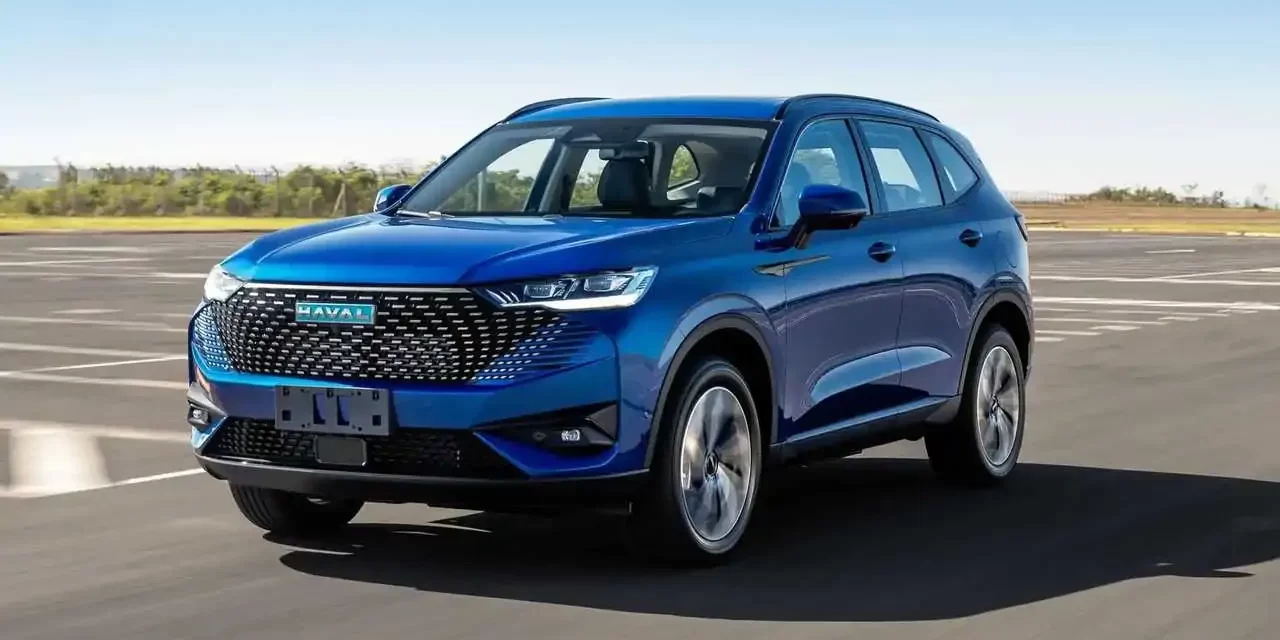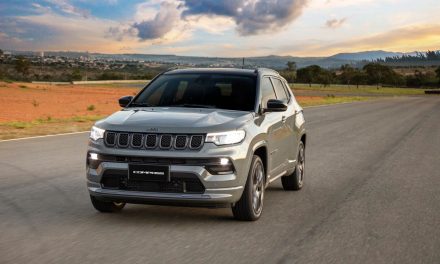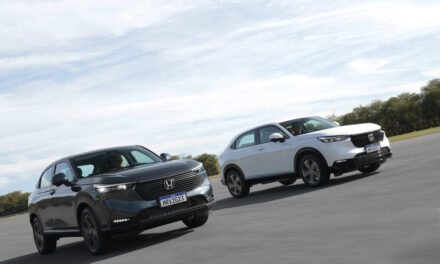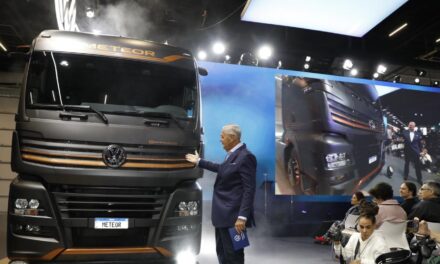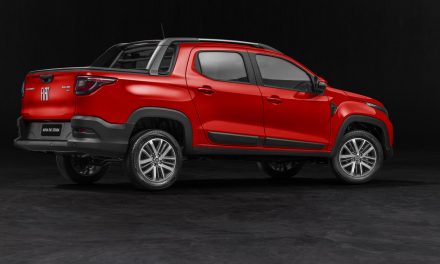By George Guimarães | 3/7/23 | Translated by Jorge Meditsch
Chinese GWM, Great Wall Motors, will begin to manufacture its vehicles in Iracemápolis, SP, in the first half of 2024 but is already working to consolidate its brand. An important step was given this Tuesday, 3/7, with the release of the prices of three versions of its medium SUV Haval 6.
The first GWM product in Brazil was already being offered in the plug-in hybrid versions Premium and GT only for pre-booking for some weeks, but the price wasn’t yet defined for consumers who, nevertheless, were paying R$ 9 thousand to ensure the order through Mercado Livre.
With the official launch of the HEC version, a conventional auto-rechargeable hybrid, the prices of the two upper versions were also revealed. The price of the only available version of the HEV, without any optional items or additional freight or color choice costs, is R$ 209 thousand Brazil-wide, and it can be purchased through the dealerships or the internet.
It also happens to the H6 Premium, which costs R$ 269 thousand in all regions, and the sporty GT, sold at R$ 299 thousand. Oswaldo Ramos, GWM’s commercial director, said the company absorbed costs to keep the same price all around the country, despite the transport logistics and different taxes from state to state.
“There is no more suggested price”, said the executive, explaining that all vehicles are invoiced directly by the manufacturer to the customer.
Ramos says this new invoicing model eliminates the addition of financial costs by the dealers, which will be free of maintaining stocks and will be responsible for delivering the car and even receiving used vehicles as part of the payment. “And they will be remunerated as they used to be.”
The current prices of the three versions of the SUV, which is intended to compete with models such as the Jeep Compass or Toyota Corolla Cross, will be maintained through March 31 in pre-sales, which will still demand a R$ 9 thousand down payment. The first buyers will receive their vehicles in April – if desired, through home delivery.

The H6 HEV, the most affordable version, has a 1.5-liter gasoline engine associated with an electric motor. The output is 243 cv, and the car accelerates from 0 to 100 km/h in 7.9 seconds. According to the brand, fuel consumption is 13 km/l. The 1.3 flex 185 cv Jeep Compass costs R$ 185 thousand and can ride 10.9 km/l.
No matter the version, the customer will have nothing to claim about onboard technology and comfort, connectivity and safety items.
All of them are complete and carry digital panel, adaptative cruise control, emergency braking system, 360-degree cameras, cross-traffic and lane-keeping assistants and blind spot sensors. They also have a traffic sign reckoning system and parking assistance for parallel or 90° spaces.
The first two scheduled maintenances are free. GWM ensures even maintenance at the owner’s address and a backup car if the maintenance takes more than 24 hours. Batteries have an eight-year warranty and two years of full coverage.
The SUV comes with an onboard Claro chip. The manufacturer should soon detail a warranted repurchase program and its future subscription service.
Government incentives
Ricardo Bastos, GWM’s institutional and governmental relations director, said in the Haval HVE 6 launch in Indaiatuba, SP, that the company had meetings with federal government representatives to define a specific incentive to produce vehicles, including new technologies.
He cited specifically the tax advantages obtained by manufacturers that build plants in Brazilian Northeast and Center-West, which generated compensations of about R$ 5 billion in 2021. “The government could equalize some differences depending on the technology to be developed and in what region the company is”, he said. He also said to expect the support of other manufacturers for this claim.
- Geely adia decisão sobre produção de veículos no Brasil, diz agência internacional - 11 de abril de 2025
- China impede crescimento das vendas globais do Grupo BMW no trimestre - 10 de abril de 2025
- Nem novos e bons produtos fazem a Peugeot “decolar” - 10 de abril de 2025

